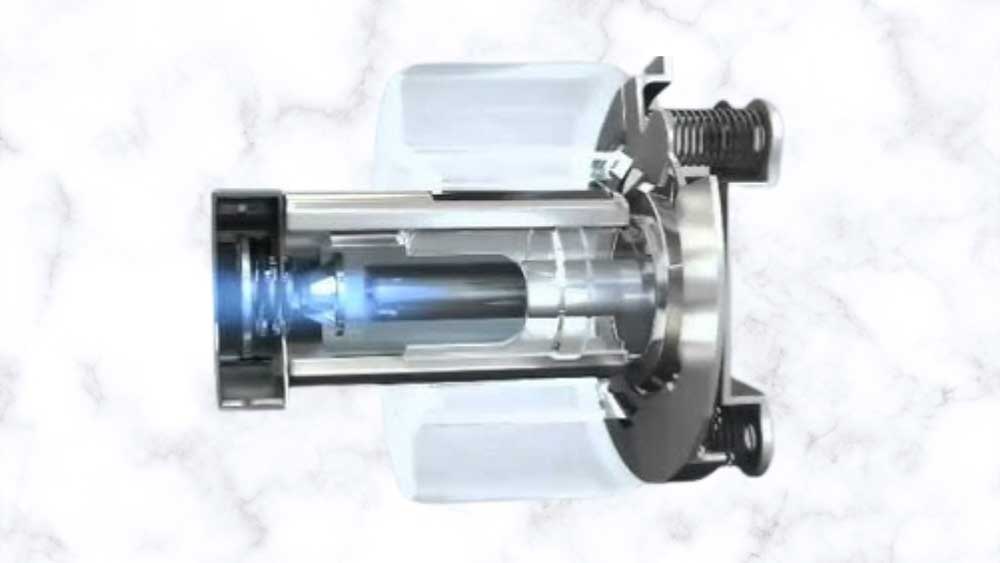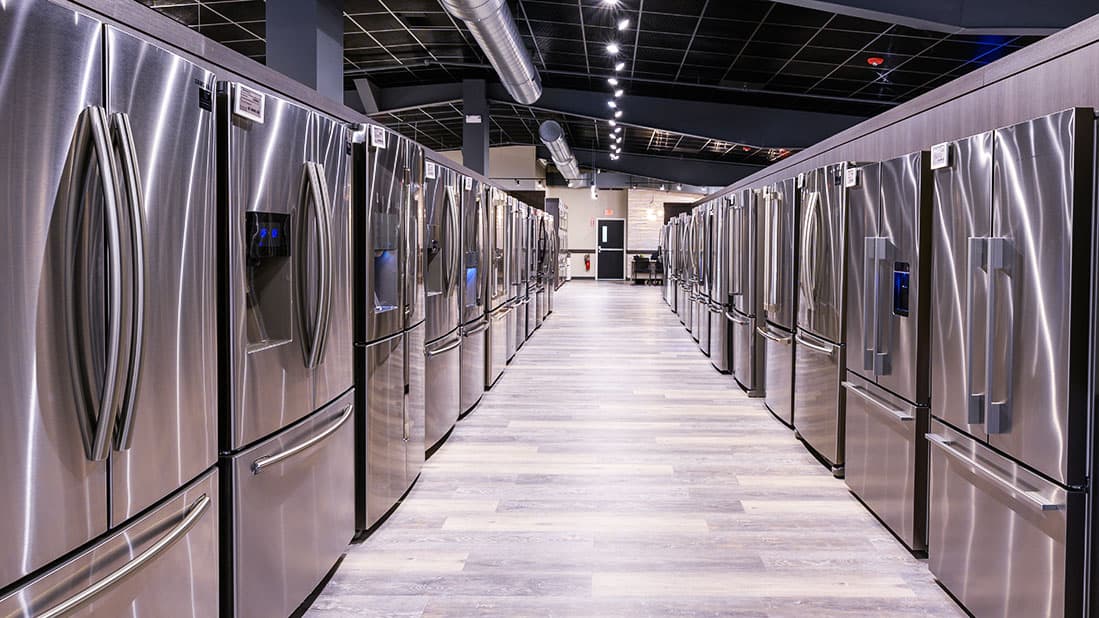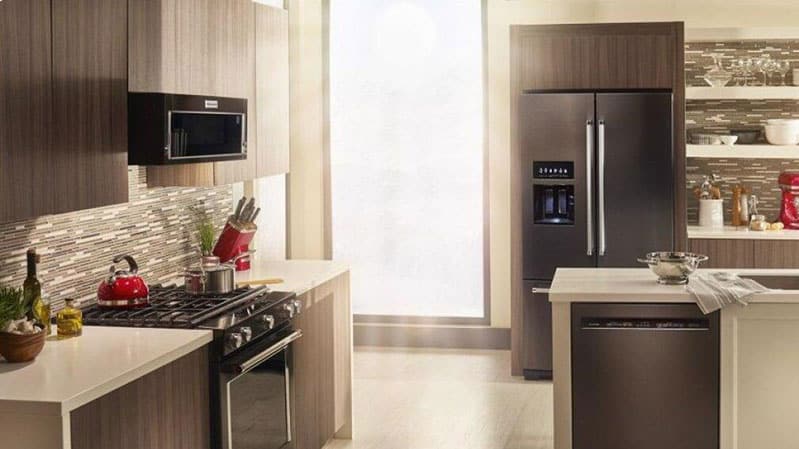LG Compressor Class-Action Lawsuit 2024: Do LG Compressors Fail?
December 19th, 2024 | 6 min. read

Consumers in Indiana have recently filed a class-action lawsuit against LG, alleging defects in their refrigerator linear compressors.
But is there truth to their claims?
In this article, we’ll share our service percentages for over 7,000 LG refrigerators sold over the past six years.
How many compressors do you think we replaced during that time? And how does LG compare against competitors like GE and Bosch?
By the end of this article, you’ll know definitively whether an LG refrigerator is the right choice for you.
Table of Contents
Table of Contents
Why You Can Trust This Article
I wrote this article because a salesperson showed me an article about another class-action suit levied against LG.
A customer was wondering why we were selling defective refrigerators—sorry, allegedly defective refrigerators.
I told the salesperson not to panic and assured him we would research it.
Privately, I was thinking, “Oh, crap.”
We have over 40 technicians, but replacing 7,000 compressors over six years would be a huge issue.
Still, I wondered why the service managers were strangely silent about such a widespread problem, especially since they’re outspoken about everything.
That was my thought yesterday. Now, here’s why you should read this article:
We service what we sell as a resource exclusively for our customers.

Everything else you read from Consumer Reports, bloggers, and YouTubers is purely conjecture.
With 7,187 LG refrigerators sold over a six-year period, you’ll have real data to help you make an informed decision about your next refrigerator.
Our job is not to scare you or overhype anything.
We report the facts. What you choose to put in your kitchen or laundry is entirely up to you.
One important point: I am not paid by LG or anyone else to write these blogs. I also do not accept affiliate links of any kind.
That’s a stark contrast to most other sources.
By the way, I hope their commissions are worth the terrifying places they often send you to buy appliances.
One last point: I used ChatGPT to research the more technical aspects of this article and to summarize the new lawsuit against LG.
I don’t normally use AI in my writing.
What Is a Linear Compressor?
A linear compressor operates using a simplified, linear motion rather than the rotary or reciprocating motion of standard compressors.
First patented in the late 1990s, linear compressors were introduced in refrigerators by LG around 2001.
This innovation aims to improve energy efficiency, reduce noise, and deliver consistent cooling performance.
What Makes LG Linear Compressors Different?
- Simpler Motion: A linear compressor uses a direct drive system with a single piston oscillating back and forth in a straight line, powered by an electromagnetic coil. This contrasts with traditional compressors, with multiple mechanical parts.
- Energy Efficiency: The simplified motion reduces friction and energy loss, leading to improved energy efficiency. This translates to lower electricity bills and a smaller environmental footprint.
- Quiet Operation: With fewer moving parts and less friction, linear compressors vibrate less, resulting in quieter operation.
- Consistent Cooling: Linear compressors excel at maintaining precise temperature by adjusting their cooling output more gradually. This reduces temperature fluctuations inside the refrigerator, helping keep food fresher for longer.
Rotary vs. Linear Compressors: Key Differences
The first rotary compressors were developed between 1905 and 1915 and became widely used in refrigerators during the 1950s and 1960s.
So, while it’s old technology, linear compressors—at 25 years old—aren’t exactly new either. I can’t think of anything I still have after 25 years.
Here are the differences:
- Mechanical Complexity: Traditional compressors, like rotary or reciprocating models, use multiple moving parts to compress refrigerant. This mechanical complexity increases the likelihood of failure over time.
- Energy Usage: Standard compressors typically operate in an "on/off" cycle leading to higher energy consumption
- Noise Levels: With more moving parts, regular compressors generate more noise and vibration during operation.
- Cooling Consistency: Traditional compressors with the on/off can cause wider temperature swings
In theory, choosing a linear compressor seems like the better option.
Then this happened:
Linear Compressors in LG Refrigerators 2014–2017
In 2020, LG agreed to settle claims related to allegedly faulty compressors in refrigerators manufactured between 2014 and 2017.
I can’t comment on those refrigerators—we didn’t start selling LG until 2018.
LG Compressor Class-Action Lawsuit 2024

The basis of this new settlement mirrors the old: linear compressors are claimed to be defective, and LG is accused of being aware of the issues but failing to address them.
Key Points of the Lawsuit:
- Alleged Defect: The lawsuit claims that the linear compressors in specific LG and Kenmore refrigerator models are faulty, leading to cooling failures and rendering the appliances inoperable.
- Consumer Impact: Affected consumers report that their refrigerators failed after only a few years of use, resulting in spoiled food and unexpected repair or replacement costs.
- Legal Action: The plaintiffs seek compensation for damages incurred due to the alleged defects and demand that LG cease selling the defective products.
- Previous Settlements: The lawsuit references prior settlements where LG addressed similar compressor issues, suggesting a pattern of recurring problems with these components.
GE Rotary Compressor Issues 1989

For context, when I started at Yale in 1986, GE had just designed a new rotary compressor.
It was launched with much fanfare in 1989.
However, engineers reportedly knew it was flawed but still installed it in GE’s newest and largest refrigerators.
The result was a disaster, leading to a massive recall that cost GE over $1 billion at the time.
This setback marked a turning point for GE appliances.
The company was never the same and eventually sold its appliance division in 2016 after being on the market for more than 20 years.
Small Footnote: I originally didn’t like seeing foreign ownership of an American brand, but Haier has transformed GE back into relevance. Kudos to them.
Linear Compressor Failure Rates 2018–2024

In six years, we have sold 7,187 LG refrigerators and replaced 84 compressors for various reasons.
This means about 1.2% of all LG refrigerators with compressors sold at Yale from 2018-2024 needed a compressor replacement.
The peak was roughly 1.6% in the last two years.
However, the actual number of compressors that truly needed replacement is probably lower.
We have refrigerator technicians on the road who typically replace the compressor in a “refrigerator not cooling” situation, along with other parts, to ensure the refrigerator is working.
Many parts can cause your refrigerator not to cool, including the electronic boards, condenser, and compressor.
By replacing them all, the customer ends up with a working refrigerator.
How Does LG Compare to Other Brands?
Here’s a breakdown of compressor replacement rates from 2018-2024:
| Compressors Serviced | Total Refrigerators Sold | Compressor Replacement Rate | |
| Bosch | 18 | 5,967 | 0.3% |
| GE Appliances | 13 | 2,262 | 0.6% |
| KitchenAid | 56 | 2,233 | 2.5% |
| LG | 84 | 7,187 | 1.2% |
| Samsung | 27 | 7,646 | 0.4% |
*We have not sold GE, KitchenAid, or Samsung for all six years like we have with Bosch and LG. Bosch is the most comparable to LG due to similar sales and service history over this period.
Bosch

Bosch outperforms LG in compressor reliability, with only 18 compressors replaced out of 5,967 refrigerators sold over the past six years.
However, in the last year, 12.5% of Bosch refrigerators required service within their first year for other issues.
Bosch is the only freestanding refrigerator with two compressors like most of the premium refrigerators such as Sub-Zero, Thermador, True, Miele, and Gaggenau.
GE

GE also performs exceptionally well in compressor reliability, with only 13 compressors replaced out of 2,262 refrigerators sold over the past six years.
Still, in the last 12 months, 19.2% of GE refrigerators required service within their first year for other issues.
KitchenAid

KitchenAid’s compressor service rate is slightly higher than LG’s, at 2.5% over the last six years. Out of the 2,233 refrigerators we’ve sold, we’ve serviced 56 compressors.
Samsung

Samsung’s compressor service rate is 0.4% over the last six years. Out of 7,646 refrigerators we’ve sold since 2018, only 27 compressors needed service.
Pro Tip: Before buying any refrigerator, check if your local appliance store offers reliable service for that brand.
So, Should You Buy an LG Refrigerator or Choose Another Brand?
LG’s compressor service rate is just 1.2% over six years—solid reliability, based on the models we’ve sold.
For context, 9% of appliances needed first-year repairs in the past year.
A compressor replacement rate of 1.2% is too small to classify LG's compressors as defective.
If you want to stay away from LG, I understand. But your options aren’t much better and, in fact, are far worse for overall repair.
LG’s real problem isn’t unique—it’s the same issue facing every appliance brand:
All the class-action lawsuits in the last few years stem mostly from the response to the problem rather than the problem itself.
There simply aren’t enough qualified technicians to repair appliances, especially refrigerator specialists.
When a company sells millions of refrigerators nationwide, even a 1.2% failure rate adds up to tens of thousands of issues.
No brand is equipped to handle that many repairs.
That said, LG has launched its own service department, which should improve things in the long run.
For now, you should be mindful of what brands, stores, and departments can best fix your appliances where you live.
Additional Resources
You deserve a refrigerator you can count on.
But how do you know which brands to trust?
Our free Counter-Depth Refrigerator Buying Guide shows you:
- What really lasts (with repair data from 33,000+ service calls)
- Which brands are worth it (no guessing needed)
- How to get the best deal (because paying too much is just plain wrong)
Join over 1 million smart shoppers who’ve made better buying decisions with a Yale Guide.
👉 Download your free Counter-Depth Refrigerator Buying Guide and be the hero of your kitchen.
Related Articles
Why Should You Trust Us?
It seems that every appliance review has nothing but glowing comments about almost every product, yet you read customer reviews and they are almost universally bad.
We are here to fill in the disconnect. We'll give you the best features, and the drawbacks as well, including reliability based on over 37,000 calls performed by our service team just last year. Our goal is to give you ALL the information so you know what's right for you.
Please consider subscribing or adding to the conversation in the comments below. We appreciate you stopping by.
Steve Sheinkopf is the third-generation CEO of Yale Appliance and a lifelong Bostonian. He has over 38 years of experience in the appliance industry, and he is a trusted source of information for consumers on how to buy and repair appliances.
Steve has also been featured in numerous publications, including the
New York Times,
Consumer Reports,
The Boston Globe,
Bloomberg Radio, the
New York Post,
The Wall Street Journal, and
Entrepreneur, for his knowledge of how to buy appliances and appliance repair.
Steve is passionate about helping consumers find the best appliances for their needs, and he is always happy to answer questions and provide advice. He is a valuable resource for consumers who are looking for information on appliance buying, repair, and maintenance.
Despite being the worst goalie in history, Steve is a fan of the Bruins and college hockey, loves to read, and is a Peloton biker. The love of his life is his daughter, Sophie.
A Note About Pricing
Pricing on this blog is for reference only and may include time sensitive rebates. We make every attempt to provide accurate pricing at time of publishing. Please call the stores for most accurate price.


